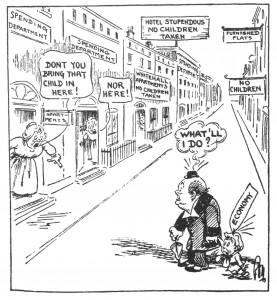Churchillnomics: The “Stricken Field”

Young Winston Churchill’s second speech in Parliament was a bravura performance taking up his father’s theme for economy in the budget.
In Churchill in His Own Words (p 45) I date this quotation 12 May 1901 and cite Churchill’s Mr. Brodrick’s Army, his 1903 volume of speeches (facsimile edition, Sacramento: Churchilliana Company, 1977), 16:
Wise words, Sir, stand the test of time, and I am very glad the House has allowed me, after an interval of fifteen years, to raise the tattered flag I found lying on a stricken field.
The “tattered flag” was Lord Randolph Churchill’s campaign for economy in the late 1880s. (Thirty-nine years later to the day, in his first speech as Prime Minister, his son would raise another tattered flag upon a very stricken field.)
My colleague Andrew Roberts writes to advise that date was May 13th not 12th, and that “stricken field” is absent in Sir Robert Rhodes James, ed., Winston S. Churchill: His Complete Speeches 1897-1963 vol. 1, p 79:
Wise words, Sir, stand the test of time, and I am very glad the House has allowed me, after an interval of fifteen years, to lift again the tattered flag of retrenchment and economy.
This is confirmed by Hansard (13 May 1901, paragraph 1566). So when and where did Churchill actually deploy “stricken field”?
Here is another case of our boy embroidering Hansard in one of his speech volumes (and mis-dating it, which he did occasionally). Mr. Roberts reminds me that speakers were allowed to alter Hansard entries if they did so within 24 hours, but obviously our author did not change his wording until 1903.
Churchill, never forgot a melodious phrase. It is likely that he recalled “stricken field” from a poem by the Canadian John McCrae (later famous for “In Flanders Fields”). In “The Unconquered Dead” (1895), first stanza, McCrae wrote:
Of we the conquered! Not to us the blame Of them that flee, of them that basely yield; Nor ours the shout of victory, the fame Of them that vanquish in a stricken field.
Churchill’s first usage (properly within quotes) was in The River War (London: Longmans, 1899) II 255-56, regarding the Battle of Omdurman:
The Emir [Ahmed Fedil] had faithfully discharged his duty, and he was hurrying to his master’s assistance with a strong and well-disciplined force of not less than 8,000 men when, while yet sixty miles from the city, he received the news of “the stricken field.”
Churchill again used “stricken field” in reference to the Battle of Majuba (The Boer War, 275); to the Dervish empire (My African Journey, 117); to Marshal Foch (Blood Sweat and Tears, 166); and to Charles II (History of the English-Speaking Peoples, II, 298).
I will add this to the corrections for my next edition of Churchill in His Own Words—”if there is one.”







3 thoughts on “Churchillnomics: The “Stricken Field””
Mr. Behm references this medieval chronicle. Does a reference to it exist? I cannot locate it.
.
Mr. Behm correctly says this explanation of the term is in Martha Gelhorn’s book, A Stricken Field, since reprinted (see note below). You can read her remarks on her fifth page on Googlebooks. Unfortunately she credits only “A Medieval Chronicle,” probably referring to the multi-volume work, The Medieval Chronicle. Some volumes are listed on Bookfinder.com but not all, and I cannot track its publishing history. I would be glad to have an exact reference. RML
According to Ernest Hemingway: A Comprehensive Bibliography, by Audre Hanneman, “Hemingway’s anonymous epigraph for Martha Gellhorn’s novel, A Stricken Field [is] credited to a ‘Medieval Chronicle.'” Gellhorn’s novel was published in 1940, Churchill’s first usage was 1903, McRae’s 1895. Unless The Medieval Chronicle was first published earlier, would it not be more likely that Gellhorn, like Churchill, read McRae? It would seem right up her alley.
A much earlier use of “a stricken field” is found in a Medieval Chronicle. See the full passage used as an epigraph by Martha Gellhorn in her novel of that title, A Stricken Field. While “The Unconquered Dead” may have been in Churchill’s mind, one wonders whether he also had read the Chronicle. Certainly he shared the view of the old knight who says, “…A battle is fought to be won. And it is this that happens if you lose.”
Comments are closed.